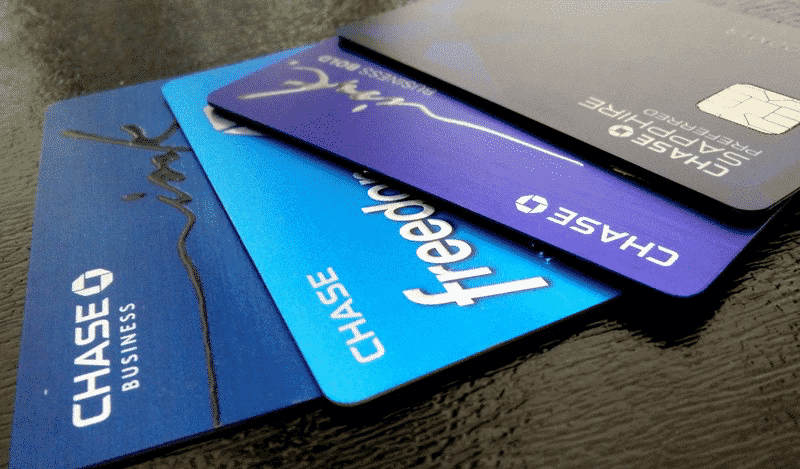Applying for a credit card these days is as simple as entering your information into an online form and clicking “submit.” But getting approvedfor a credit card requires proactive planning that should start long before you apply.
1. Know your credit score
Your credit score is one of the most important factors in a credit card issuer’s decision to approve your application. Although there might be some variation depending on the bank you’re working with, scores are typically classified by lenders as follows:
| 300 – 629 | Bad credit |
| 630 – 689 | Average credit |
| 690 – 719 | Good credit |
| 720 and up | Excellent credit |
Most rewards credit cards require good or excellent credit. So if you’ve struggled to maintain a good credit history, it may be worth it to put off applying until you can get your finances in top order. You can do this by:
- making payments on time
- keeping your balances low on existing credit cards
- avoiding new debt
As an alternative, you might consider these good cards for people with bad credit, which can help get you closer to qualifying for a rewards card over time. Just make sure to use the card responsibly to best help rebuild your credit.
Nerd note: There are multiple credit scoring models, with the two most prominent being the FICO score and VantageScore. FICO scores, developed by Fair Isaac Corp., are the scores most commonly used by lenders in making credit decisions. The VantageScore model was developed by the three major credit bureaus as a competitor to FICO.
» MORE: NerdWallet’s best credit cards
2. Reduce your debt
A full 30% of your credit score is determined by how much you owe. High credit card balances can be especially damaging. Your credit utilization ratio — your balance divided by your credit limit — should be below 30% on each credit card. So if, for example, you have a credit limit of $10,000, it’s recommended to keep the balance below $3,000 at all times.
You can lower your credit utilization by creating a plan to pay down an existing balance as quickly as possible. Additionally, consider paying off purchases more than once a month to keep your balance lower throughout the month.
» MORE: NerdWallet’s best credit cards for bad credit
3. Don’t apply for the first offer you see
If you don’t have good credit, you may find it difficult to get approved for a card with a large sign-up bonus and a lucrative reward structure. Each credit card application ends up on your credit report, so the Nerds recommend using our tool to find a card that fits your credit profile before applying. If you’re still unsure, call the card issuer and ask about a specific card’s requirements.
4. Include all of your income in the application
Your credit score is a good indicator of your overall creditworthiness, but it doesn’t tell lenders about one important thing: your income. Credit card issuers need your income level to calculate your debt-to-income ratio, which helps determine your ability to make payments. There are two ways to lower this ratio: increase income or decrease debt.
» MORE: NerdWallet’s best cash-back credit cards
If you earn money outside your full-time job, include it on your application so that an accurate debt-to-income ratio will be reflected. However, resist the temptation to overstate your income. If an issuer finds that you knowingly provided false information on your application, you could be charged with credit card fraud, which is punishable by up to $1 million in fines and/or 30 years of imprisonment.
5. Don’t give up
If you think you’ve done everything right and your application is still denied, don’t move on just yet. Credit card issuers have reconsideration lines you can call to plead your case.
Have a plan before you call. You have the right to ask the issuer why you were denied, and you can also check your free credit report at AnnualCreditReport.com to see if there are any blemishes on your history. Formulate a convincing argument as to why you want the card and why you are fiscally responsible. Above all, be polite. Customer service agents are much more likely to respond positively if you have a pleasant demeanor.
You may also have an easier time getting approved for a secured credit card, which uses a cash deposit you make upon approval to “secure” your line of credit. Some of The best secured cards offer cash rewards, flexible deposit amounts, and the chance to upgrade to an unsecured card (and get your deposit back).
The bottom line
Being denied for a credit card hurts — both psychologically and in terms of the effect on your credit score.
That’s why it’s essential to take stock of your credit situation before you apply for your next card, and to choose the best card to apply for based on that information.
Also, make sure to give accurate information during the application process and be prepared to make a case for yourself in the event you aren’t approved immediately.

 A Northern Lights Cruise Is the Best Way to See the Natural Phenomenon
A Northern Lights Cruise Is the Best Way to See the Natural Phenomenon Advanced Spy Technology in Your Hands: Track Anything With Your Smartphone
Advanced Spy Technology in Your Hands: Track Anything With Your Smartphone The Power of the Chase Trifecta: Sapphire Reserve, Ink Preferred, Freedom Unlimited
The Power of the Chase Trifecta: Sapphire Reserve, Ink Preferred, Freedom Unlimited Winc Review: The Netflix Of Wine + Exclusive Coupon Offer
Winc Review: The Netflix Of Wine + Exclusive Coupon Offer